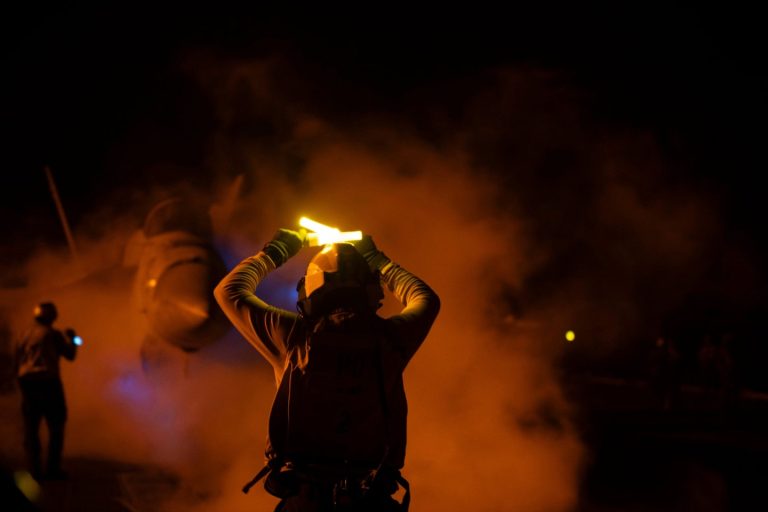The statement said: “Our goal remains to calm tensions and restore stability in the Red Sea.” “But let us reiterate our warning to the Houthi leadership: we will not hesitate to defend lives and the free flow of trade in one of the world’s most important waterways in the face of continuing threats.”
This was the eighth round of strikes launched by the United States on Houthi targets since January 11, and the second in which Britain participated. This comes at a time when the Biden administration faces the spread of violence throughout the Middle East against the backdrop of the Israeli war against Hamas fighters in the Gaza Strip.
The ongoing military action underscores the Biden administration's concern about the chilling impact that a series of more than 30 Houthi attacks on commercial and naval ships in recent months, which the rebels have portrayed as a response to Israel's treatment of the Palestinians, is having on global shipping. About the Arabian Peninsula.
While US officials hope to keep the current operation limited in scope, the Houthis' defiance and pledge to seek revenge raises the specter of a long military campaign that could represent a setback for Biden's goal of refocusing US foreign policy on Russia and China.
The confrontation with the United States has put the Houthi movement in the spotlight, which seized large areas of Yemen nearly a decade ago and then defied a years-long bombing campaign by neighboring Saudi Arabia. US officials have long accused Iran of providing weapons and training to the Houthis.
The Biden administration has sought to portray its actions as supported by broad international consensus, pointing to the issuance of a resolution condemning the Houthi attacks at the United Nations and a series of joint statements supported by a group of partner countries. But many of Washington's closest Arab allies have not expressed support for the latest US strikes, and only Britain has so far participated in military action.
The United States also leads a separate coalition patrolling regional waterways, called Operation Prosperity Sentinel, and carries out operations that attempt to prevent weapons smuggling.
A military official, who like other officials spoke on condition of anonymity to discuss details of the operation, said the administration was trying to limit the scope of its goals to those related to the Houthis' ability to continue their naval attacks as part of their campaign. Trying to avoid escalating the situation further.
The official said that between 25 and 30 munitions were used in the operation, which included air, surface and undersea strikes.
Pentagon officials, speaking after the strikes were announced, called the action “self-defense.” President Biden faced criticism from some Democrats who said he should have obtained congressional approval before attacking the Houthis.

